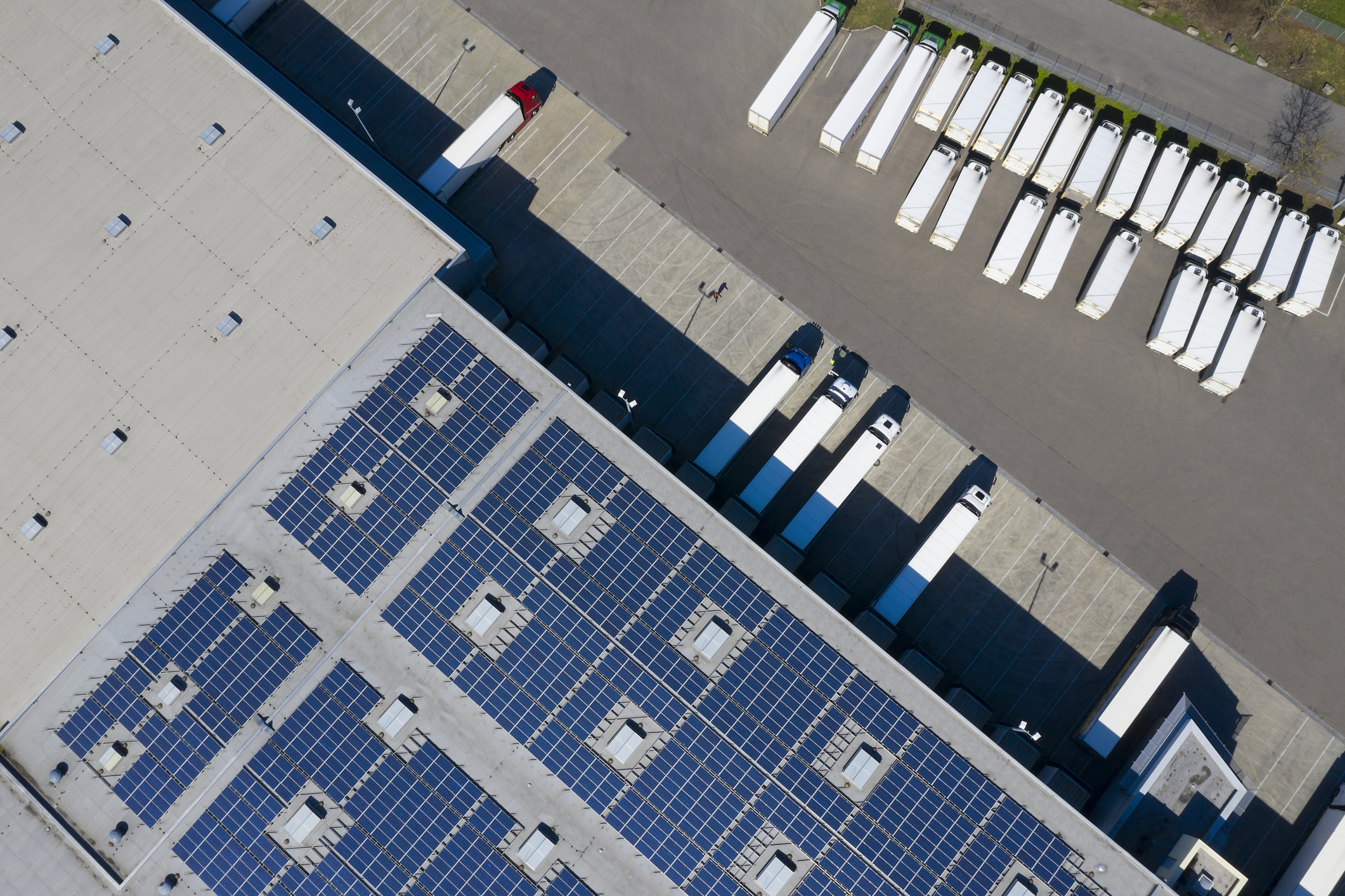The Benefits of Solar for Businesses

With solar energy becoming more affordable and accessible than ever before, businesses across the U.S. are increasingly investing in solar as a reliable, clean, inexpensive, and environmentally friendly power source. From Fortune 500 companies to small/midsize businesses, on-site commercial solar installations are booming. These panels can be installed on rooftops, in parking lots, or ground-mounted.
Sunshine Is Good for Business
According to the Solar Energy Industries Association (SEIA), corporate solar adoption has expanded rapidly over several years, with two-thirds of all capacity installed since 2015.
Whatever the motivation for a business tapping into solar — environmental, economic, or personal — one thing is sure, the financial and sustainability benefits are impressive. Solar can make your business more competitive, boost your bottom line, and improve profitability. Plus, it’s one of the best investments you can make with an average ROI of 20 percent or more. Most solar panel systems pay for themselves multiple times throughout their 25 to 30 year lifetime.
So what are the specific business benefits and advantages of harnessing the power of sunshine? Let’s look at some key ones.
Reduced Energy Costs
With the cost of solar decreasing and electricity prices increasing, the economics of solar as an energy source makes good business sense. Energy savings from solar can add up. EnergySage market data suggests that the average commercial property owner in the U.S. can save 75 percent by going solar. According to their report, the average commercial property owner paid $1,940 in monthly electricity bills before going solar. After installing solar systems, the monthly bill was around $500.
Improved Budgeting and Planning
The price of electricity can fluctuate due to demand, making managing cash flow, budgeting, and planning for the future problematic. Generating your electricity with solar power allows you to hedge against the price volatility of electricity. With solar as your energy source, you’re essentially locking in the price of electricity and protecting your bottom line and business operations from unpredictable and undoubtedly higher rates down the road.
Federal Investment Tax Credit (ITC)
The ITC is a significant incentive that gives you a tax credit of 26 percent of what you paid for your newly installed solar panel systems. Instead of a deduction, a tax credit directly offsets what you would otherwise owe in taxes. Or, to put it another way, instead of being taxed on a lower income, the federal ITC compensates what you owe in taxes and can even come back to you as a refund. (Some states also offer additional tax credits and cash rebates for solar systems).
Performance-Based Incentives (PBIs)
PBIs pay you a per kilowatt-hour credit from the utility for the solar electricity that your system produces. These incentives can be significant and enhance your financial return over the lifetime of your system.
Fewer Power Outages
With traditional energy sources, power outages can be a common occurrence. If you don’t have a generator, all sorts of problems can occur that affect productivity. With solar, you don’t need to worry about the power going out or about a generator. So, the probability that you’ll be dealing with the headaches of a power outage is close to zero.
Decrease in Carbon Footprint
Not only is solar a wise investment for your business, but it’s also an intelligent investment in the environment that reduces your carbon footprint. Unlike traditional energy sources, solar energy is clean, green, and renewable, with no harmful pollutants or greenhouse gases released into the air.
Increased Customer Base and Employee Satisfaction
With customers and potential customers attracted to a business committed to sustainability, solar can help expand your customer base. Going solar can also boost employee morale and help you retain your best employees. More and more, employees are looking to work for companies that make sustainability a top priority, which translates into employees who are happier, more productive, and invested in your company’s mission.
Switching to solar is not an overnight process. Instead, it takes careful consideration, planning, and time to implement correctly. Laying the groundwork by talking with a professional solar installer about your unique needs, followed by a site visit is an excellent place to start.